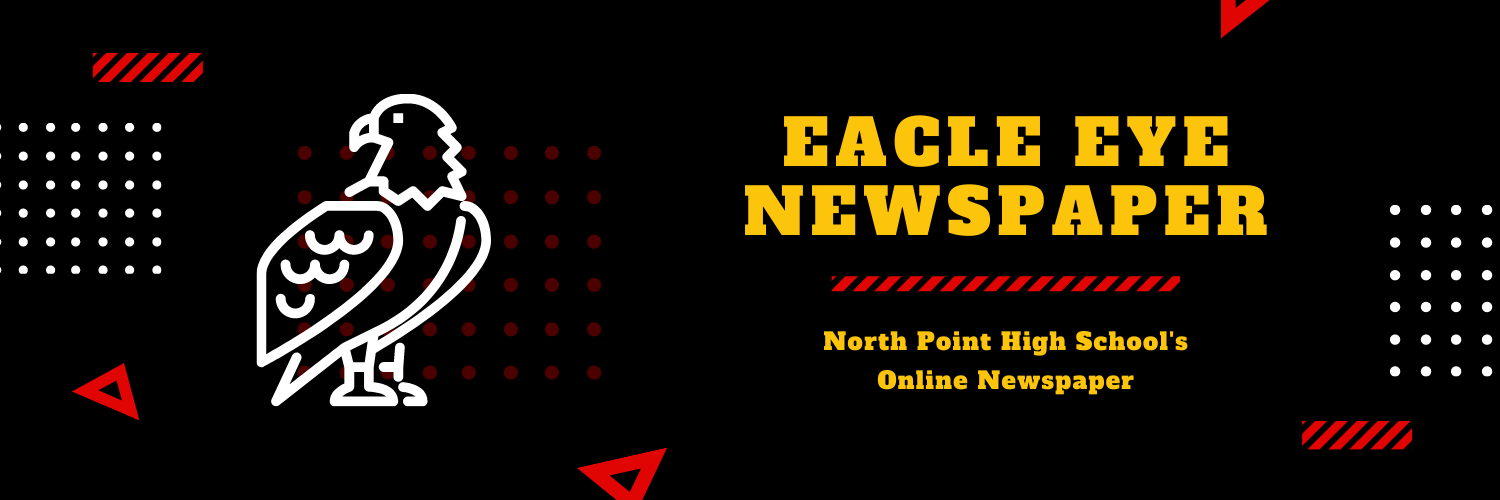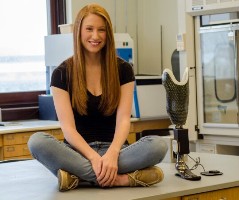A few years ago, a student in the class of 2010 named Katherine Bomkamp won first place in the Charles County Science Fair. What won her that ribbon was something she invented that was inspired by the amputees that had just returned from war. “My dad was in the Air Force for twenty years and his last duty station was the Pentagon. I went with him to Walter Reed Army Medical Center and met a lot of young amputees returning from Iraq and Afghanistan. I wanted to solve a problem they faced,” said Bomkamp.
Her invention is called The Pain Free Socket. “It is a prosthetic device that incorporates the concept of thermal biofeedback (or concentrated and controlled heat) into the prosthetic socket,” explained Bomkamp. “The heat stimulates served nerve endings in the residual limb, and forces the brain to focus on the heat rather than to continue to send signals and commands down to a limb that is no longer there.” It is like the heat is used as a distraction.
After winning the Charles County science fair, Bomkamp went on to be a two-time Intel International Science Fair winner. “After I started winning science fairs, people started realizing the potential in my work.” She was inducted into the National Gallery for American’s Young Inventors in 2010. This is what caught a lot of people’s attention and made them become very interested in Bobkamp’s work.
Many news sources like Fox News, CNN, the New York Times, and Glamour Magazine have interviewed Bomkamp for her invention. A few authors have even put her story into their books. There was a feature story on her on February 8th on ABC News. Her work is making her quite famous.
There is nothing like The Pain Free Socket. She received her first patent on it back in June of 2012, and now she is filing for another. She even started her own company for this invention back in 2011. “My company is a structure I put in place to manage the product development process,” said Bomkamp.
Bomkamp is currently in her junior year at West Virginia University where she is majoring in political science. “I have always liked science, but I like seeing the practical applications of it rather than the more theoretical side,” explained Bomkamp. Her invention is not selling yet; Bomkamp and her company are fundraising for clinical trials. “I am raising funding to move through the proof of concept testing, and then will hopefully license the technology to a large prosthetic company.”
Mrs. Harner said, “Katherine was a good student in Honors Physics and a conscientious learner. She had a strong interest in learning all that she could, no matter the project.”



